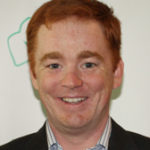

2012 Young Scholars: David Gale

Department of Primary Industry NSW
…it was the time spent with other passionate young people also embarking on a journey down this path [of international agricultural aid research] that was the most valuable part of being a Crawford 2012 Scholar.
‘An expected population of 9-10 billion by 2050’, is a statistic which those working in and around food security matters have heard plenty of times. ‘Why do we focus on this as if it’s some inevitable end point, and if we’re right what will happen in 2051?’, was a new point of view, for my ears at least, and the essence of a question asked by fellow scholar Felicity Shonk.
Whilst talks from people like Professor Jonathan Foley, who covered five strategies to double food availability at the same time as halving environmental impacts, were informative, engaging and motivating for someone like myself at the front end of a career in international agricultural aid research, it was the time spent with other passionate young people also embarking on a journey down this path that was the most valuable part of being a Crawford 2012 Scholar.
Dr Trevor Nicholls, outlined that we can build food security or we can buy it, and he left a very simple schematic in our minds, but talking with Casey Doolette who is working on silver nano particles in soil in SA and Madaline Healey who is investigating thrips in QLD, and building connections and linkages with each, provided enormous benefit for me.
To have seventeen young people, from a range of Australian Universities, together in one place, and to briefly meet a number of African students towards the end of the conference, all of whom are enthusiastic to get out and get involved with on the ground agricultural research in developing countries, gave me new energy to keep moving forward in that direction.
We can’t ignore the growing population though, for whom we will require an additional 70% of current food demands. There may, however, be an opportunity to obtain these gains through greater water use efficiency and greater use of IT systems, said Rijsberman.
At the same time, however, we can’t deny that a growing population will require more energy to power their homes and cars, and also to move this ever increasing volume of food around. A balance is therefore required between the often competing land uses of agriculture, mining, maintenance of natural ecosystems, and urbanisation because if we take away any one of these we fail to have a functioning modern society. Dr Christine Padoch went as far as to say that we need to protect forests because we need to grow more food.
Finally we need to consider our context as a developed country in a region of developing and/or exponentially growing countries. Australia has historically had extensive expertise to work with other countries to increase their agricultural production, and as a nation we continue to export around 60% of the food grown within its borders. Both of these areas will need to continue as the populations of these countries, especially China, continue to grow, because, as Professor Foley so eloquently put it, “Agriculture is critical to the success of civilisations” (Foley).